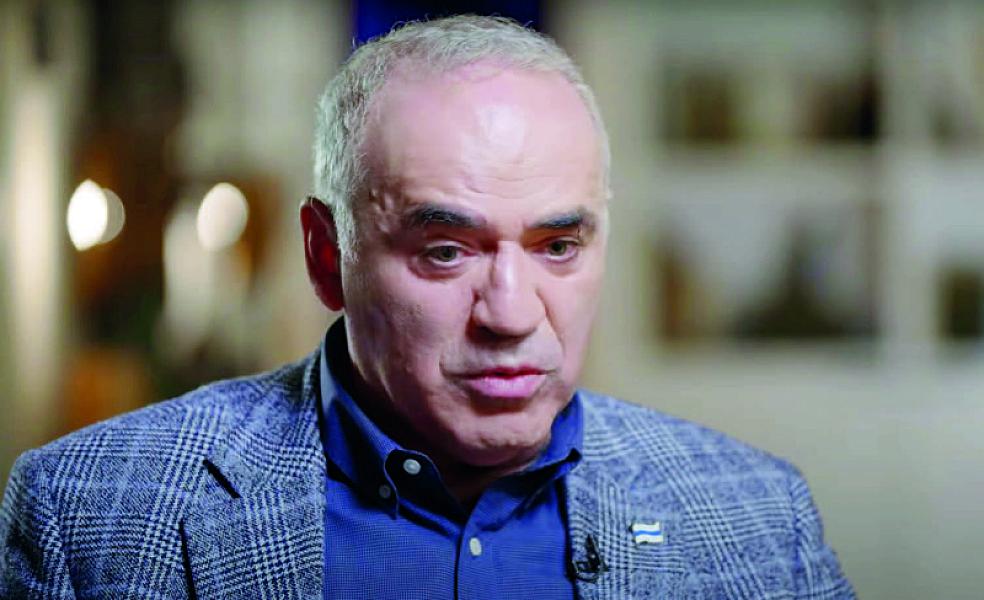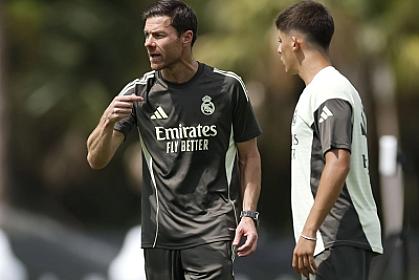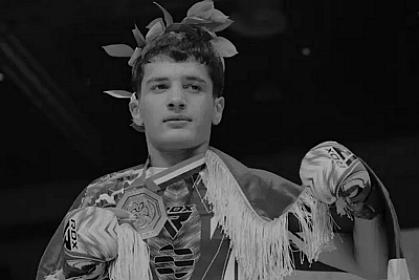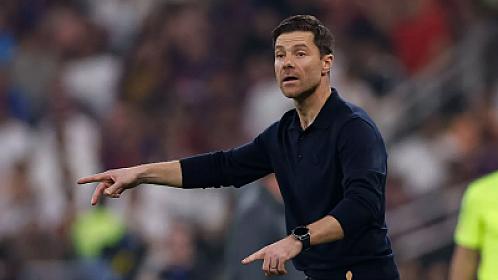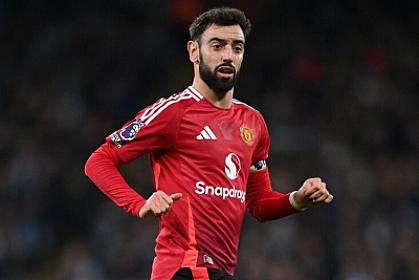Baku does not believe in delayed tears
Last week, World Chess Champion and well-known public-political figure Garry Kasparov gave an interview to Ukrainian journalist Dmitry Gordon. Kasparov, of Armenian origin born in Baku, spoke on many issues. The main topic he focused on was the signed peace agreement between Azerbaijan and Armenia, and generally, the creation of a reconciliation environment.
Garry Kimovich Kasparov, born in 1963, became the youngest World Chess Champion in chess history at the age of 22 in 1985, breaking Mikhail Botvinnik's record. After retiring from professional chess in 2005, Garry Kimovich actively participated in opposition political movements in Russia, became known as a harsh critic of the current Russian President Vladimir Putin’s policies, turned into one of the leaders of the "United Civil Front" organization, and promoted the defense of democratic values, free elections, and human rights in the country. Kasparov, also recognized as the author of many books on chess theory, strategy, as well as politics and democracy, currently lives in the USA and continues his public-political activities.
***
In any case, Kasparov said in his interview with Gordon that he is very glad that the bloody conflict in the Caucasus is coming to an end and hopes for the normalization of relations between Azerbaijan and Armenia. According to the chess player, one of the most important aspects of the agreement between Baku and Yerevan is that Russia, the main provocateur of the bloody war in the region, is being removed from the South Caucasus: "Thank God they removed Russia from there. The Russian empire, which was the main instigator of all these events, will no longer be there. Overall, this is a big step forward. Now we will have a flourishing economic zone. There is an environment to work and earn there; both Azerbaijanis and Armenians have their own opportunities and capabilities. Surely, it will be possible to build and create all this."
In his interview, G.Kasparov also spoke about our nation's National Leader, President Heydar Aliyev, emphasizing the great role the great personality played in his destiny: "I am grateful to Heydar Aliyev and have always written about this. Without his support, I could not have advanced. Only Aliyev and his powerful force could stop the big party-KGB machine trying to keep Karpov (then Kasparov’s main rival for the world championship Anatoly Karpov - editor) in place. In 1983, during the first stage of the competition, when they tried to eliminate me, Heydar Aliyev did not allow it. The process against me was led by Boris Stukalin, head of the Communist Party’s ideology department. I was 20 years old then. The Sports Minister and head of the 5th Directorate of the KGB said, 'You are young, you can wait 3 more years.' I appealed to Heydar Aliyev. To my knowledge, after that, when Heydar Aliyev saw Stukalin, he told him, 'Don’t harm my native.' After that, the wheel began to turn in another direction. At that time, it was better not to argue with Heydar Aliyev, who was one of the close associates of Soviet leader Andropov..."
When Gordon asked Kasparov about the possibility of visiting Baku, the second emotions took over and he said that earlier such a visit was not possible; now the situation is changing in a good direction: "If Armenian delegation visits to Baku begin, then of course I want to go there. Especially, I would like to show Baku to my wife and children. I am at that age when nostalgia pains my heart."
***
As it seems, the Azerbaijani factor has played a very significant role in Garry Kasparov’s life, and he always emphasizes this himself. Let us assume that Kasparov has a sense of gratitude. But how sufficient is it? Absolutely not sufficient. He is now taking the easy way out, blaming Russia, accusing Russian imperialism of stirring hatred among peoples. Any ordinary Azerbaijani or Armenian could say this. But one wonders, where was Kasparov's mind at that time? Was he unable to think? For years, he acted not as an intellectual connected to Baku, but essentially as an Armenian nationalist. However, this should not have been so. Therefore, in conclusion, we will have a word for him at the end of our article.
For now, let’s say when H.Kasparov spoke about the roots of the Karabakh conflict, he usually linked the issue to the Sumgait events of 1988. This approach is completely unacceptable and is more a product of the Russian political narrative. Recall that Putin, whom Kasparov dislikes, after the Second Karabakh War, behaved as if mediating between the parties, referred to the depths of the conflict between peoples, brought the Sumgait events to the fore, and tried to find cause-and-effect relationships. Something like this: because Azerbaijanis committed massacres against Armenians in Baku, Sumgait, and Ganja, Karabakh Armenians took action.
But it is known that before the Sumgait events, there was the Topkhana incident, which was a clear provocation planned by Armenian nationalists. Even during the time when the Great Leader Heydar Aliyev, who protected Kasparov from pressure, led Azerbaijan, attempts were made to separate Karabakh from Azerbaijan and join it to Armenia, and just as the National Leader stopped injustice against the chess player, he crushed these attempts in the cradle. Furthermore, Kasparov must know that the Sumgait events were instigated by the Soviet "KGB" and its Armenian agents. Therefore, he should not fabricate a Sumgait etymology regarding the Karabakh conflict, but consider that in doing so, he is relying on the theses of the past empire he dislikes.
Indeed, Kasparov at different times has also rung internationalist tones and spoken about peace between the Azerbaijani and Armenian peoples. The issue is that executioners like Robert Kocharyan and Serzh Sargsyan, who were the second and third presidents of Armenia, expressed approximately the same ideas and portrayed themselves as proponents of reconciliation. But in practice, they acted otherwise. Kasparov, in principle, did not differ at all from them. Because he did not stand on the side of justice, but made various interpretive moves for the sake of Armenian adventurism. For example, when he talked about Karabakh, he emphasized the right of peoples to self-determination. Yes, Kasparov said that regarding the region’s status, legal and historical aspects should be taken into account, and the Soviet-era autonomous republic structure should be considered as a basis. At that time, for instance, the autonomy of Karabakh was fundamental, so why were Zangilan, Gubadli, Fuzuli, Aghdam, Kalbajar, Shusha, and Lachin occupied? Why did Garry Kimovich not protest this? Our question is rhetorical.
On the other hand, Kasparov knows why the autonomous region was created in Karabakh during the Soviet era. This structure was like a time bomb embedded inside Azerbaijan. The bomb went off in 1987 immediately after the Great Leader Heydar Aliyev was removed from power in the USSR. The Sumgait events Kasparov relies on became part of a larger “scenario.” Doesn’t the man know these things?
It is also known that Kasparov stood in opposition to the junta regime in Armenia, in other words, the Kocharyan-Sargsyan tandem, because this tandem took directives from Russia. Kasparov's, to put it mildly, another mistake was that he postponed the resolution of the Karabakh conflict "until the democratic forces come to power in Azerbaijan and Armenia." This logic carries a strong anti-Russian orientation.
That is, Russia is the root of everything, and this is true. But by associating the conflict with the political systems of the two states focused on Moscow, the chess player made a strategic manipulative move. As if if Azerbaijan and Armenia were to turn their backs on Russia and seek refuge in the West, everything would be resolved. Wasn’t it the West that called on Azerbaijan to accept the occupation?
There is a great reality concerning Karabakh: in that reality, it should not matter who governs Azerbaijan or Armenia. The reality is that neither Karabakh nor the territory on which modern Armenia is established is Azerbaijani historic Turkic land. Kasparov "forgot" that not only he but also many Armenians lived in security in Baku, which is Turkic land, and even created an impression that Armenians were being persecuted in Azerbaijani cities.
Yes, Kasparov forgot the role of being an intellectual who should tell the truth. He acted the same way during the Second Karabakh War. Giving interviews during the war, he again brought up the Sumgait events and simultaneously created the opinion that the former Soviet and Bolshevik leaders did not consider Armenian interests and made decisions favoring Azerbaijanis. This is an outright lie.
***
Finally, let us dwell on Kasparov's sentimentality about coming to Baku. As is known, he has previously expressed similar views. At one time, considering the "massacres against Armenians carried out in our capital and other cities," he put forward a condition. Basically, he would only visit Baku again if all ethnic Armenians born here were allowed to visit without obstacles; no special demands would be made. This condition has a name—shamelessness.
But to end our article somewhat positively, let us say that there will be peace between Azerbaijan and Armenia, wounds will heal, and representatives of both peoples will restore mutual visits as before. After all, eternal enmity does not exist, and this can be said by looking at the history of modern Europe and the world in general.
But people like Kasparov will remain as miserable failures in history, because they did not say what was necessary at the right time; on the contrary, they fabricated nonsense and distorted reality. Perhaps they were afraid, reluctant to swim against the tide. In any case, the situation they face does not reduce their responsibility.
Therefore, it would be good for Garry Kimovich, who wears the internationalist mask, to consider all the points we have drawn attention to and to take his desire to come to Baku to his grave. That would be for the best. Of course, we are not cruel and do not wish death upon our compatriot, and we end our article with this call: Mr. Kasparov, go play your chess! Baku does not believe your tears.
Ə. Jahangirov,
“Xalq Newspaper”, September 23, 2025

